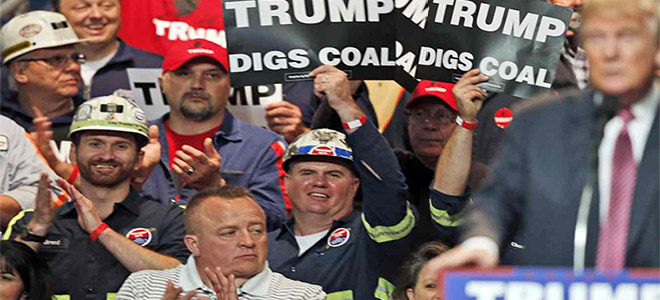
Jack Stilgoe and Roger Pielke Jr: As they recover from Donald Trump’s shock victory, US scientists must ask themselves three big questions.
The Guardian
November 11, 2016
Donald Trump has won. Science and scientists played almost no part in the campaign. Now, scientists must consider how they fit into a Trump future. This won’t be easy. Many scientists are scared. In the tribal world of US politics, many now find themselves on the outside looking in. Most university scientists are Democrats, and the 2017 President, House and Senate will all be Republican. For this group, nothing portends disaster more than the elevation of a long-time opponent to national and international policies, Myron Ebell of the Competitive Enterprise Institute, to oversee the transformation of the Environmental Protection Agency.
Even those academics who lean Republican (many of whom are engineers, since you ask) would despise Trump’s rejection of what a George W Bush adviser once dismissed as the “reality-based community” (that is, anyone interested in prioritising evidence over faith).
While speculating on details like who Trump will ask to replace John Holdren as his science advisor, scientists should not just be asking what Trump will do for them. They should face up to the difficult question of what they should be doing for Trump.
Some scientists will have to join the White House itself. When George W. Bush was elected, his administration had a hard time finding a scientist willing to serve as his science advisor. When Jack Marburger, a highly respected administrator and physicist who was also a Democrat, took the job he was excoriated by his peers and excommunicated from some scientific circles. We see hints of similar responses to Trump’s election already. Earlier this week the American Physical Society issued a press release congratulating Trump on his victory and encouraging him to “make sustained and robust funding of scientific research a top priority.” The APS received so many complaints that it felt compelled to retract it and issue an apology.
Some have already written off Trump’s yet-to-be-named science advisor. For instance, Robert Cook-Deegan of Arizona State University says, “For Trump, I’m not sure [his science advisor] would matter, because there won’t be any ‘policy’ apparatus… Science won’t get much attention, except when it gets in the way or bolsters support for a political priority.” Marburger was called a “prostitute” upon taking the position under Bush.
There are thousands of political appointees, including many science positions, that will need to be nominated, expert advisory bodies constituted and reconstituted, and experts put into staff positions under the White House. Any scientist who agrees to hold their nose and work with the Trump administration should expect much of the same criticism received by Marburger. Some, such as government scientists, will not have much choice but to engage. That is their job. The rest of the scientific community must still ask itself some difficult questions. We suggest three. Read more …

